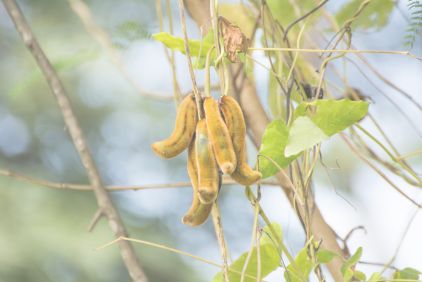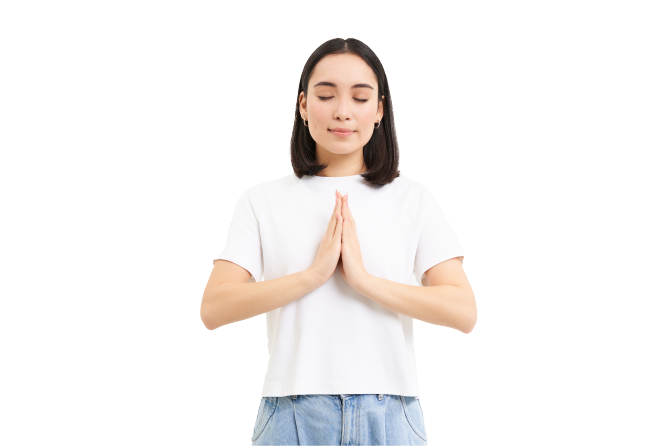Mucuna and nervous balance: understanding the reasons for discomfort
Happiness is an enduring balance between body and mind. It supports the immune system, the endocrine system, the heart, the mind and longevity. In Ayurveda's founding treatise, a healthy person is one whose mind is bathed in the bliss brought about by a state of balance between body and mind, but also between the 3 doshas, the 7 dhatus and agni.

Balance according to Ayurveda
• The Vata, Pitta and Kapha doshas are the 3 vital energies that govern the well-being of our body and mind. Ayurvedic medicine aims to strike a balance between these three energies.
• The dhatus are the 7 main components of the body: lymph, blood, muscle, fat, bone, marrow and reproductive tissue.
• The digestive fire, or agni, controls everything our body and mind assimilates, from food to emotions. This is why digestion is an essential function for good health.
Ayurveda considers that a person's happiness (or ill-being) is the overall result of his or her state of health. Illness often has its origins in the emotional mind or spirit. More than 300 million people worldwide suffer from depression, and no fewer than 3 million people in France are affected by this mood disorder.
The origins of unhappiness
Ill-being can be caused by an imbalance of the doshas, a disconnection with the ego (our inner self), lack of sleep (late bedtime), a diet that is too rich in fat and sugar and lacking in essential nutrients, insufficient physical activity or exposure to natural light, excessive stress, emotional difficulties and seasonal changes.
Unhappiness according to the doshas
According to Ayurveda, there are three types of malaise corresponding to the 3 Ayurvedic doshas: Vata, Pitta and Kapha.
• Vata malaise is characterized by poor appetite, weight loss, cold and dry skin, digestive problems, difficulty falling asleep and going to bed very late, difficulty staying focused and overactivity.
• Pitta malaise, often fueled by excessive behavior and a tendency to try too hard, is marked by episodes of anger and constant irritation.
• Kapha malaise is often the result of excessive sleep, which destroys motivation and creates a need to eat processed foods. Digestion of these foods produces excess ama (waste) and induces a state of permanent fatigue.
Stress and emotional management

Focus on serotonin and dopamine
Serotonin and dopamine are the hormones of well-being and happiness. Stress reduces serotonin production, leading to mood swings, poor sleep, anxiety and digestive disorders.
Dopamine is important for a person's well-being and equilibrium: when its level is low, the individual suffers behavioral disorders and an imbalance in the nervous system. High levels, on the other hand, lead to motivation and happiness. This is why, when we lack dopamine, we tend to consume coffee, chocolate or even alcohol to compensate for the lack of a feeling of happiness.
How does a lack of dopamine manifest itself ?
- Mental and physical fatigue
- Need for stimulants (coffee, tea, energy drinks)
- Difficulty concentrating
- Lack of desire, pleasure or motivation
- Self-deprecation and social isolation
- Sleep disorders
How to tame stress ?
All of life's phenomena generate functional and/or psychological stress: climatic variations, noise, changes in activities, surprises of all kinds, agitation, etc. Stress is the result of an interpretation of events and a reactionary behavior. Stress results from an interpretation of events and reactionary behavior. Stress accelerates the aging process of cells and the body. When we're happy, our body secretes neurotransmitters that promote good health, whereas when we're stressed, the neurotransmitters released by our brain disrupt the functioning of all our vital organs. Our emotions are responsible for our mental and physical health: they influence organ health and physiological processes.
Ayurveda considers the intestine to be our 2nd brain. It is the seat of Vata energy and emotions. This is a consideration shared with the West, as illustrated by the many popular expressions linked to the intestines: "having a ball in the stomach", "knots in the stomach", "making bile". Research shows that 95% of serotonin and a good proportion of neurotransmitters are produced and stored in the intestine, with the remaining 5% in the brain. There is thus a strong link between diet and emotions. Even if the intestine is considered a 2nd brain, it is nonetheless directly linked to the first, the real one. Emotional stress inhibits the gut's ability to produce healthy neurotransmitters, particularly in the brain.
To reduce stress, Ayurveda recommends the consumption of suitable plants such as Mucuna, meditation, sufficient rest (by going to bed early), rising with the sun (to benefit from its light), body massage, a healthy diet and regular physical activity. Physical activity increases the level of endorphins in the body, which has a recognized impact on depression.
Mucuna for a healthy nervous system

In Ayurveda, Mucuna pruriens is a plant renowned for its action on nervous balance. It acts on mood disorders as well as age-related tremors. Mucuna is a natural source of L-dopa, a precursor of dopamine. It is a Rasayana plant, a concept that refers to regeneration and rejuvenation, for greater harmony between mind and soul.
Mucuna is recommended in cases of mental or physical fatigue, mood or sleep disorders, low libido, nervousness, hypertension, uncontrolled tremors or restless legs. In addition, it awakens joie de vivre and reduces the effects of stress (thanks to the presence of serotonin). The messages of well-being sent to the brain by Mucuna stimulate the whole organism, soothing stiff joints and muscles. Mucuna balances all three doshas, particularly the Vata dosha.






